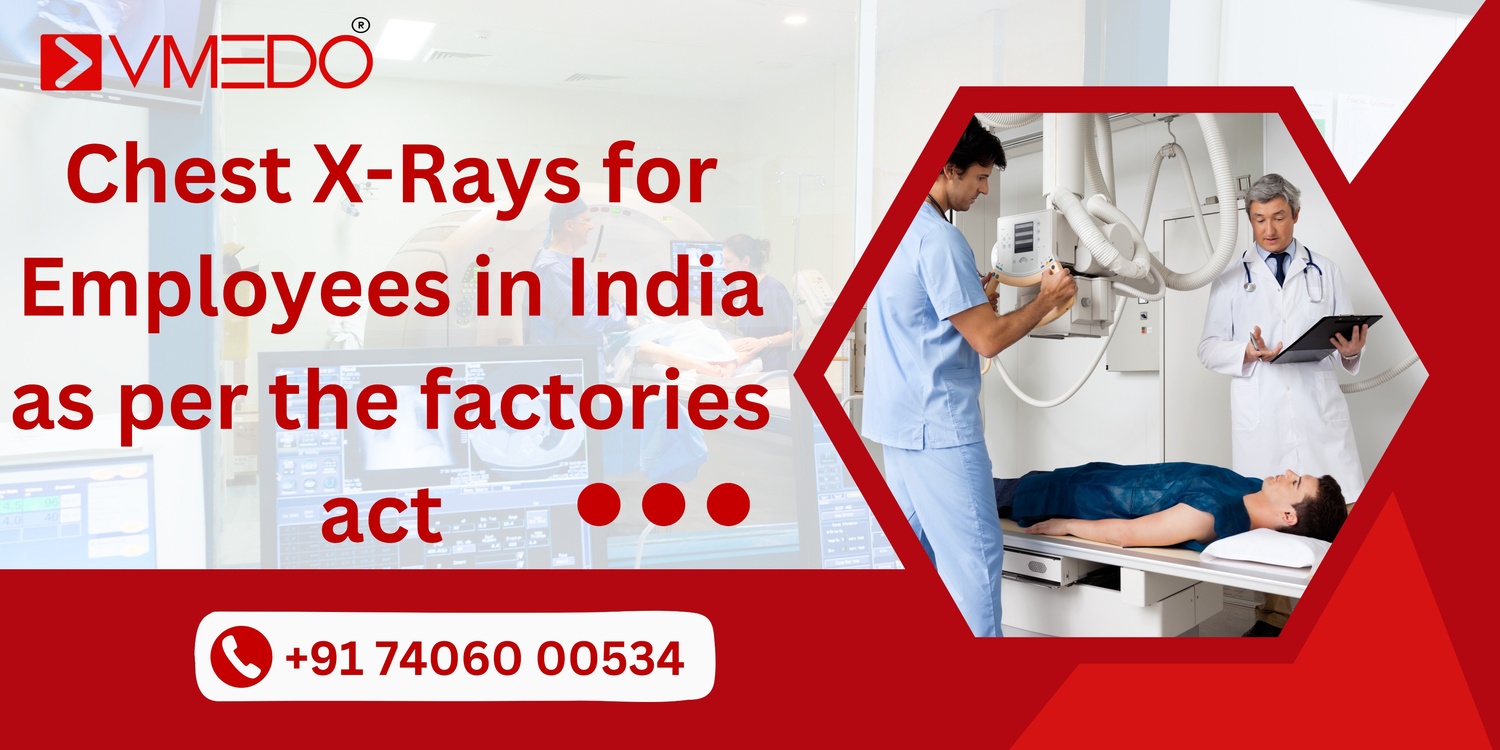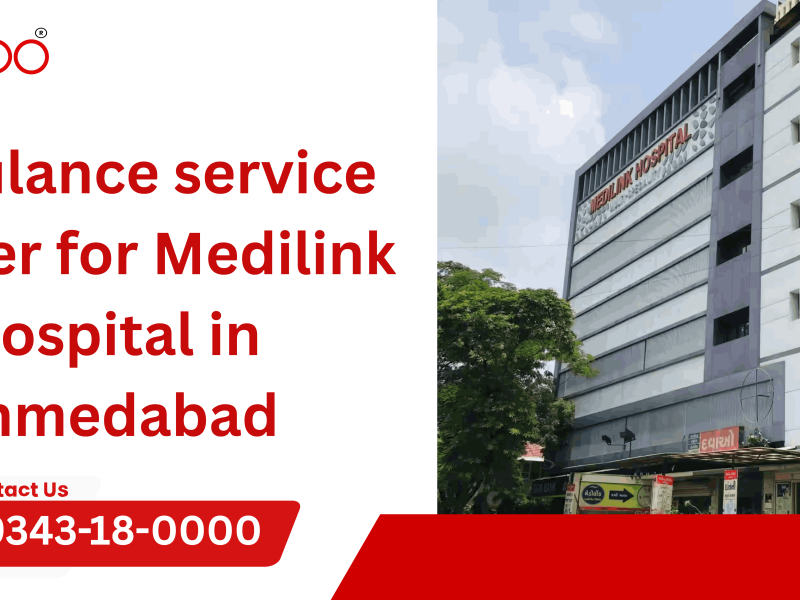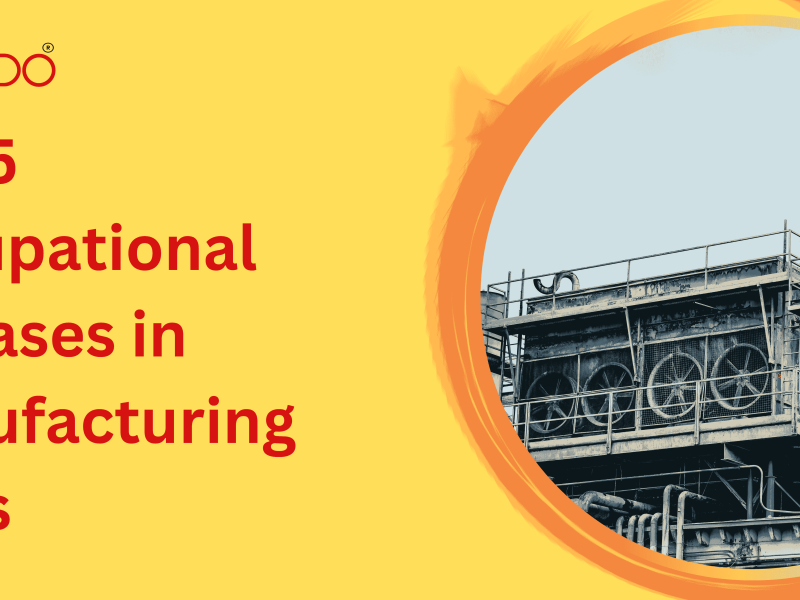Chest X-rays are an essential diagnostic tool, especially in occupational health settings where employees may be exposed to hazardous environments or substances. Regular chest X-rays can reveal early signs of respiratory and other health issues, ensuring timely medical intervention.
VMEDO offers comprehensive chest X-ray programs tailored to safeguard employee health in high-risk industries, helping organizations comply with regulatory standards and reduce workplace health risks. With VMEDO’s expertise in occupational health services, businesses can ensure safe, efficient, and regulatory-compliant health screening solutions, protecting their workforce and enhancing productivity. Contact us today at +91 74060 00534 to learn how VMEDO can support your occupational health needs.
Legal and Regulatory Requirements for Chest X-Rays
-
Mandatory Health Screenings
Certain industries are required to conduct regular health screenings, including chest X-rays, as part of occupational health programs. The Factories Act, 1948 in India mandates health assessments, including chest screenings for employees exposed to respiratory hazards. -
Compliance with Workplace Safety Standards
Chest X-rays help employers comply with occupational health standards and regulatory guidelines. Failure to meet these standards can result in penalties or operational restrictions. -
Employee Rights to Privacy and Informed Consent
While chest X-rays are essential for occupational health, employees have the right to be informed and provide consent before undergoing medical tests. Transparency regarding the purpose, risks, and frequency of these tests is vital for ethical compliance.
Importance of Chest X-Rays in Employee Health
- Early Detection of Respiratory Issues
Chest X-rays help detect early-stage respiratory issues like tuberculosis, pneumonia, or chronic obstructive pulmonary disease (COPD). Early diagnosis enables prompt intervention, preventing severe health complications and reducing healthcare costs. - Workplace Safety Compliance
Employee exposure to dust and toxic gases is a concern in high-risk industries (mining, construction, chemical manufacturing). Regular chest X-rays help monitor employee health and ensure compliance with workplace safety standards, promoting a safer work environment. - Baseline Health Assessment
Chest X-rays establish a baseline for new employees, especially in industries that could pose respiratory risks. This baseline allows employers to monitor changes over time and assess the impact of the workplace environment on an employee’s respiratory health.
Types of Chest X-Rays
- Standard Chest X-Ray
This is the most common type and provides a general overview of the lungs, heart, and other structures. It’s typically used in routine screenings or when symptoms like cough, chest pain, or breathing difficulties arise. - Digital Chest X-Ray
Digital X-rays are more advanced and provide clearer, high-resolution images. Digital images are easier to store and share and can be enhanced for better diagnosis. - Computed Tomography (CT) Chest Scan
Though not strictly an X-ray, CT scans are often used alongside X-rays for a more detailed view. They’re especially useful in diagnosing complex conditions like lung nodules or tumors and can reveal abnormalities that may not be visible on standard X-rays.
Which companies should do Chest X-rays for Employees
Chest X-rays are an essential part of occupational health screening in industries where employees are exposed to hazardous conditions affecting respiratory health. These tests help detect lung diseases, infections, or structural abnormalities caused by environmental or workplace factors. Below are key industries where chest X-rays are mandatory:
-
Mining and Quarrying
- Workers are regularly exposed to dust, silica, and other particulates, increasing the risk of pneumoconiosis and silicosis.
- Chest X-rays are crucial for monitoring respiratory health and ensuring early detection of lung damage.
-
Chemical and Petrochemical Industries
- Frequent exposure to chemical fumes and toxic gases poses a significant risk of lung conditions like chemical pneumonitis.
- X-rays help assess lung health and identify early signs of exposure-related damage.
-
Construction Industry
- Prolonged exposure to asbestos, cement dust, and other fine particulates can lead to respiratory conditions such as asbestosis and chronic obstructive pulmonary disease (COPD).
- Regular screenings are necessary for compliance with occupational health regulations.
-
Manufacturing and Welding
- Workers in metal fabrication and welding are exposed to welding fumes, which may cause respiratory inflammation or lung damage.
- Chest X-rays help identify chronic lung conditions caused by prolonged exposure.
-
Healthcare Sector
- Employees in hospitals and laboratories may be exposed to tuberculosis (TB) or other respiratory infections.
- Chest X-rays are used to screen healthcare workers for TB and ensure workplace safety.
-
Textile Industry
- Exposure to cotton dust in textile mills can lead to byssinosis, commonly known as “brown lung disease.”
- Regular X-rays help monitor lung health and prevent complications.
-
Shipbuilding and Asbestos Handling
- Workers involved in shipbreaking or handling asbestos are at high risk for mesothelioma and other asbestos-related conditions.
- Chest X-rays are crucial for monitoring potential lung damage over time.
-
Firefighting and Emergency Services
- Firefighters are exposed to smoke, toxic gases, and particulate matter during operations, increasing the risk of respiratory conditions.
- Routine chest X-rays ensure early detection of work-related respiratory illnesses.
-
Oil and Gas Industry
- Workers in drilling and refining operations are exposed to hydrocarbons and volatile organic compounds (VOCs), which may harm lung health.
- Chest X-rays play a vital role in detecting respiratory complications.
Health Conditions Detected through Chest X-Rays
- Tuberculosis (TB)
Chest X-rays help detect TB by revealing scarring or fluid in the lungs. Early detection of TB is crucial for stopping its spread, particularly in a workplace setting. - Pneumonia
X-rays show lung infection patterns typical of pneumonia, helping doctors assess the extent of the infection and monitor its progression over time. - Chronic Obstructive Pulmonary Disease (COPD)
For employees in industrial settings, COPD is a common concern. X-rays can identify lung abnormalities associated with COPD, allowing for timely intervention. - Lung Cancer
Early detection of lung cancer can be life-saving, especially for employees exposed to carcinogenic substances like asbestos or silica dust. Chest X-rays reveal abnormalities or growths that may indicate early-stage cancer. - Heart and Blood Vessel Issues
Chest X-rays can also show signs of heart enlargement or fluid buildup around the heart and lungs, which could indicate underlying cardiac issues.
Frequency and Timing for Employee Chest X-Rays
- Pre-Employment Health Screening
Conducting chest X-rays as part of a pre-employment screening helps employers assess a new hire’s respiratory health status, especially in high-risk sectors. - Annual or Biannual Health Checkups
Routine chest X-rays for employees exposed to respiratory hazards (e.g., dust, smoke, chemicals) help detect occupational diseases early. - Symptom-Driven X-Rays
If an employee reports persistent respiratory symptoms, additional chest X-rays may be required to diagnose and address the issue promptly.
Why Choose VMEDO for Occupational Health Services?
Choosing VMEDO means partnering with a team dedicated to promoting workplace health and safety with a comprehensive, reliable, and flexible approach. Here’s why VMEDO stands out as an ideal choice for companies aiming to protect and support their employees:
1. Expertise in Occupational Health
- VMEDO specializes in workplace health and safety services, from first aid training to setting up Occupational Health Centres (OHCs). Our solutions meet industry standards and regulatory requirements, ensuring your company stays compliant while prioritizing employee wellness.
2. Comprehensive Health Screening Services
- From pre-employment health check-ups to ongoing screenings like chest X-rays, audiometry, and vision tests, VMEDO offers a full suite of health services. These screenings are essential for early detection of occupational diseases, keeping employees safe and productive.
3. Customized Health Programs
- We understand that each industry faces unique health challenges. VMEDO provides tailored programs that align with your industry’s specific needs—whether that’s preventive care, specialized training, or health and safety consultation.
4. Qualified Medical Staff and Resources
- VMEDO’s network includes certified healthcare professionals with the skills needed to deliver reliable health assessments and medical consultations. This ensures your employees receive the highest standard of care at every stage.
5. Focus on Employee Education and Preparedness
- Beyond screenings, VMEDO emphasizes employee education through first aid, CPR training, and safety workshops, empowering your workforce to handle emergencies and everyday health concerns effectively.
6. Commitment to Compliance and Best Practices
- VMEDO’s services adhere to government regulations and occupational health standards, such as the Factories Act of 1948, ensuring your company remains compliant and that employee health records are handled securely and ethically.
7. Accessible and Flexible Solutions
- With VMEDO’s scalable and cost-effective services, businesses of any size can benefit from our health programs. We work closely with you to implement and manage occupational health solutions that fit your budget and goals.
Contact VMEDO Today
Ready to prioritize employee health and safety? Visit our website VMEDO or call +91 74060 00534 to explore our occupational health solutions and discover how we can support your organization in creating a healthier, safer work environment.
VMEDO Services
- Annual Health Checkups for Employees (Factories Act Compliance) in India
- Pre-Employment Health Checkups in India
- Lung Function/PFT Tests for Employees in India
- Blood Tests for Employees (Factories Act Compliance) in India
- ECG Tests for Employees in India
- Audiometry Tests for Employees in India
- Eye/Vision Tests for Employees in India
- Medical Fitness Certificates (Factories Act Compliance)in India
- HIV/HBs Tests for Employees in India
- Chest X-Rays for Employees in India
- Hepatitis B Vaccinations in India
- HPV Vaccinations in India
- Tetanus (TT) Vaccinations in India
Frequently Asked Questions (FAQ) on Chest X-rays for Employees
1. What is the purpose of chest X-rays for employees?
Chest X-rays detect respiratory and heart conditions, monitor health in high-risk jobs, and comply with workplace safety standards.
2. When should an employee have a chest X-ray?
Common times include pre-employment, annually (for high-risk jobs), or if experiencing symptoms like persistent cough or chest pain.
3. What conditions can a chest X-ray detect?
Conditions like tuberculosis, pneumonia, COPD, lung cancer, and heart issues can be identified with chest X-rays.
4. Is it safe to have regular chest X-rays?
Yes, chest X-rays use low radiation, but safety protocols limit the frequency to minimize cumulative exposure.
5. What’s involved in a chest X-ray procedure?
Employees stand or lie down for the X-ray, holding their breath briefly while the image is captured. It takes just a few minutes.
6. Are chest X-rays mandatory?
In industries with respiratory hazards, chest X-rays may be mandatory as per the Factories Act and other safety regulations.
7. How can chest X-rays benefit employers?
They help detect and prevent serious health issues, support workplace safety compliance, and reduce healthcare costs over time.
8. Why choose VMEDO for chest X-ray services?
VMEDO offers expert, customized health programs with certified professionals, ensuring top-quality care and regulatory compliance.
9. Cities VMEDO operates?
Bangalore, Chennai, Hyderabad, Mumbai, Kolkata, Pune, Ahmedabad, Delhi, Kochi.



